Mental wellness in New Year often encompasses factors like reflections, New Years’ resolutions, and anticipations that profoundly impact mental health. These connections, in turn, are attributed to the pressure to make resolutions [mfn] McManus C. (2004). New Year’s resolutions. BMJ (Clinical research ed.), 329(7480), 1413–1414. https://doi.org/10.1136/bmj.329.7480.1413 [/mfn] , regretful reflection, and keeping in mind all the emotions involved with transitioning to another stage. Appreciating these dynamics is central to adopting positive and mindful dispositions regarding the New Year and encouraging psychological welfare amidst the festive environment.
Films About Mental Wellness In New Year
Several films explore the theme of mental wellness in New Year, particularly in the context of life and relationships. The 1995 film Four Rooms portrays several individuals stuck in the fictional Hotel Mon Signor in Los Angeles on New Year’s Eve. The film combines supernatural elements with mental health themes like loneliness, mania, and psychopathy. New Year’s Eve (2011) shows several interconnected couples and singles navigating life’s difficulties and relationships on New Year’s Eve. The characters depict holiday stress, alongside several mental health disorders like OCD, depression, social anxiety disorder, grief, and substance addiction.
While not strictly themed on the New Year, popular romantic comedies like When Harry Met Sally (1998) and Two Night Stand (2014) explore how the festivity and celebrations during New Year’s Eve can impact our emotions, often triggering mental health issues related to holiday transition stress, post-holiday depression and anxiety, social withdrawal, etc.
Read More About Grief Here
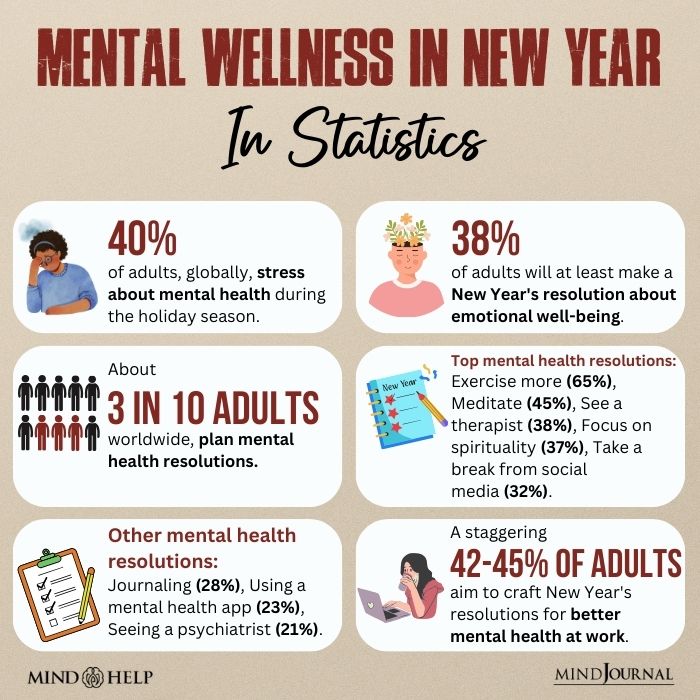
How Does The New Year Positively Affect Mental Health?
The advent of the New Year often impacts mental health positively [mfn] Oscarsson, M., Carlbring, P., Andersson, G., & Rozental, A. (2020). A large-scale experiment on New Year’s resolutions: Approach-oriented goals are more successful than avoidance-oriented goals. PloS one, 15(12), e0234097. https://doi.org/10.1371/journal.pone.0234097 [/mfn] , symbolizing new beginnings and hopefulness. In doing so, people can have a desired goal and purpose in life leading to proactive thinking that promotes overall well-being and mental health. When individuals look back on their past year and think about future dreams, they tend to seek things that make them better and positive people.
Furthermore, during New Year holidays, one can experience joyfulness, belongingness, or hope through ceremonies and celebrations. The New Year is essentially a kind of psychological reset button that inspires people to embrace change, build psychological resilience, and develop a positive approach to life in the coming year with renewed optimism and purpose.
How Does New Year’s Stress Negatively Impact Mental Health?
While the holidays may be a time for happiness, some people may experience emotional developments [mfn] (2023). Apa.org. https://www.apa.org/news/press/releases/2023/11/holiday-season-stress [/mfn] linked to:
- Post-holiday transition stress
- Post-holiday depression
- Post-holiday anxiety
- Seasonal affective disorder (SAD)
- Post-holiday financial stress
Read More About Seasonal affective disorder (SAD) Here
In most cases, people experience stress from society’s expectations and reflections about previous year’s unfulfilled goals. Mental wellness in New Year get hampered due to the social inclination to dedicate a new year to resolution and personal growth [mfn] Oscarsson, M., Carlbring, P., Andersson, G., & Rozental, A. (2020). A large-scale experiment on New Year’s resolutions: Approach-oriented goals are more successful than avoidance-oriented goals. PloS one, 15(12), e0234097. https://doi.org/10.1371/journal.pone.0234097 [/mfn] . This might create a false image when one fails to achieve dreams and set goals. This perceived failure may contribute to heightened stress levels, a negative impact on self-esteem, and a stirring dread for the approaching year, since individuals may internalize negative feelings that they have not met societal standards.
Additionally, the social expectation for grand New Year’s Eve celebrations can cause anxiety for those being forced to participate in activities that are not suitable or enjoyable for them. Many may also display signs of fear of missing out (FOMO) [mfn] Gupta, M., & Sharma, A. (2021). Fear of missing out: A brief overview of origin, theoretical underpinnings and relationship with mental health. World journal of clinical cases, 9(19), 4881–4889. https://doi.org/10.12998/wjcc.v9.i19.4881 [/mfn] , substance addiction [mfn] Alozai, U. ullah, & Sharma, S. (2023, July 21). Drug and Alcohol Use. PubMed; StatPearls Publishing. Available from: https://www.ncbi.nlm.nih.gov/books/NBK513263/ [/mfn] (through excessive drinking or drugs), and behavioral disorders. Loneliness or social isolation can be amplified through contradictory scenarios whereby festivities take place concurrently with individual hardships.
Read More About Fear Of Missing Out (FOMO) Here
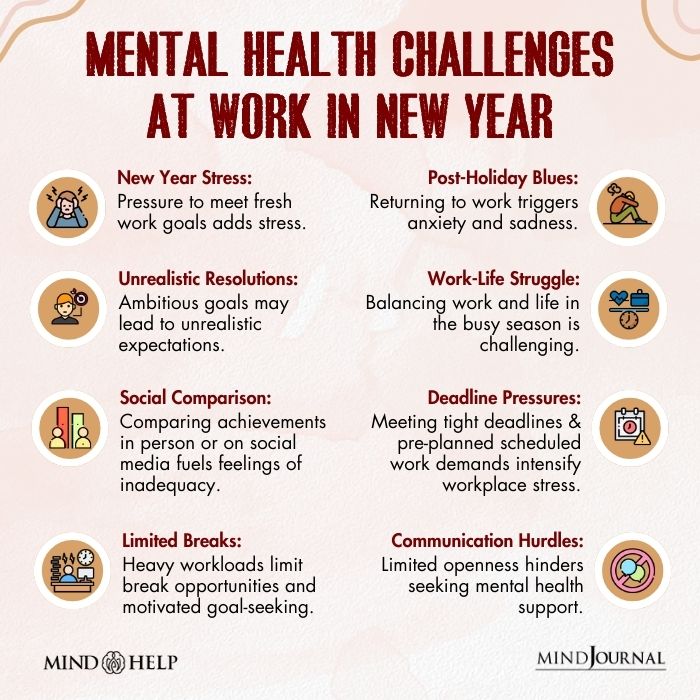
New Year’s Mental Health Tips
Mental wellness in New Year can be a tricky affair and may mandate the embracing of certain New Year’s mental health tips. Spend a mentally sound New Year by doing away with regretful reflection, holiday stress, and negative nostalgia. Prioritize activities [mfn] Stoewen D. L. (2017). Dimensions of wellness: Change your habits, change your life. The Canadian veterinary journal = La revue veterinaire canadienne, 58(8), 861–862. [/mfn] that spell self-care and enjoyment like going on a new tour, enjoying nature, or spending quality time with loved ones. If negative thoughts persist, foster a supportive environment by communicating openly with friends and family. Finally, ensure ample time for rest and rejuvenation to start the New Year with a refreshed and positive mindset.
Read More About Holiday Stress Here
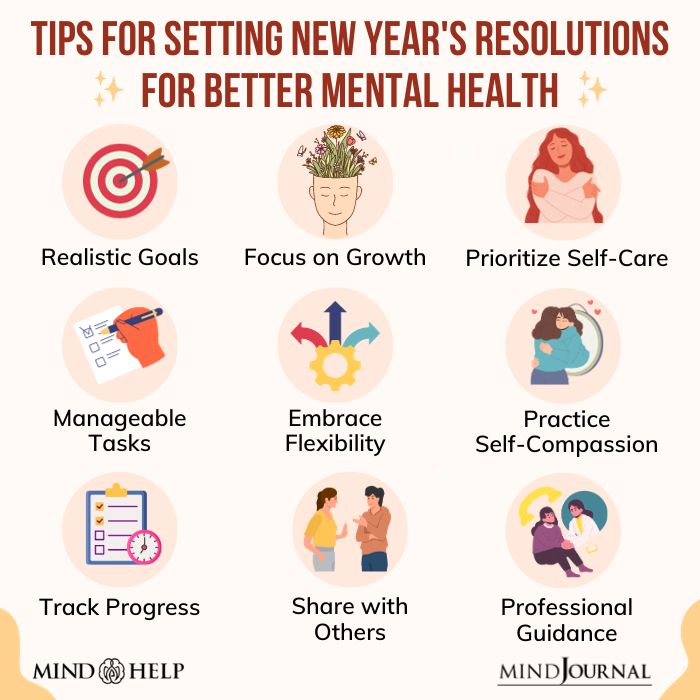
Tips For Setting New Year’s Resolutions For Better Mental Health
Consider the following tips [mfn] Dickson, J. M., Hart, A., Fox-Harding, C., & Huntley, C. D. (2023). Adaptive Goal Processes and Underlying Motives That Sustain Mental Wellbeing and New Year Exercise Resolutions. International journal of environmental research and public health, 20(2), 901. https://doi.org/10.3390/ijerph20020901 [/mfn] for crafting new year’s resolutions for better mental health:
- Set realistic goals and choose achievable resolutions that suit your current capabilities and circumstances.
- Focus on self-improvement and personal growth while framing New Year’s resolutions.
- Prioritize self-care by incorporating habits that nurture your mental health, such as regular exercise, sufficient sleep, and mindfulness practices.
- Divide ambitious objectives into smaller, manageable tasks to achieve goals better.
- Consider tracking progress and celebrating achievements better with vision boards, to-do lists, apps, etc.
- Embrace flexibility and adjustments in your New Year’s resolutions to adapt to changed priorities or new challenges.
- Practice self-compassion and reflect positively and build on your skills and achievements, instead of dwelling on past shortcomings.
- Share your New Year’s resolutions with friends or family who can provide encouragement and accountability.
- Seek professional guidance and consult with mental health professionals, if needed.
Read More About Mindfulness Here
Takeaway
The New Year provides a unique opportunity for individuals to enhance their mental wellness through mindful reflection, realistic goal-setting, and a commitment to self-care. By navigating the complexities of resolutions, societal pressures, and the celebratory atmosphere with a positive mindset, individuals can embrace the New Year as a catalyst for personal growth, resilience, and overall well-being.
At A Glance
- Mental wellness in New Year often encompasses factors that profoundly impact mental health.
- Most issues of mental wellness in New Year concern holiday stress, end-of-year reflections, and New Year’s resolutions.
- Several films explore the theme of mental wellness in New Year, particularly in the context of life and relationships.
- While the New Year generally brings joy and optimism, it can also induce mental health issues like post-holiday blues and anxiety, social withdrawal, etc.
- New Year’s mental health tips involve mindfully participating in the festivities, building a support system, and crafting healthy New Year’s resolutions for better mental health.
Frequently Asked Questions (FAQs)
1. How Can I Relax In The New Year?
You can relax in the New Year by incorporating mindfulness practices, such as deep breathing or meditation, into your daily routine.
2. Is New Year Stressful?
The level of stress associated with the New Year varies from person to person, influenced by individual expectations and circumstances.
3. Is New Year Blues A Thing?
Yes, New Year blues can be a real phenomenon for some, often stemming from reflections on the past year and the pressure to set new resolutions.
4. Why Does New Year’s Eve Give Me Anxiety?
New Year’s Eve may induce anxiety due to societal expectations, fear of missing out (FOMO), or the pressure to have a memorable celebration.

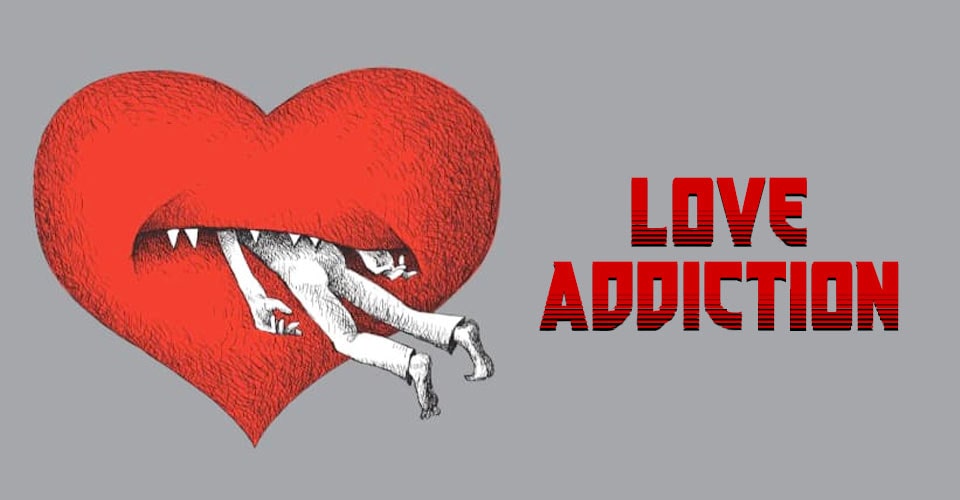
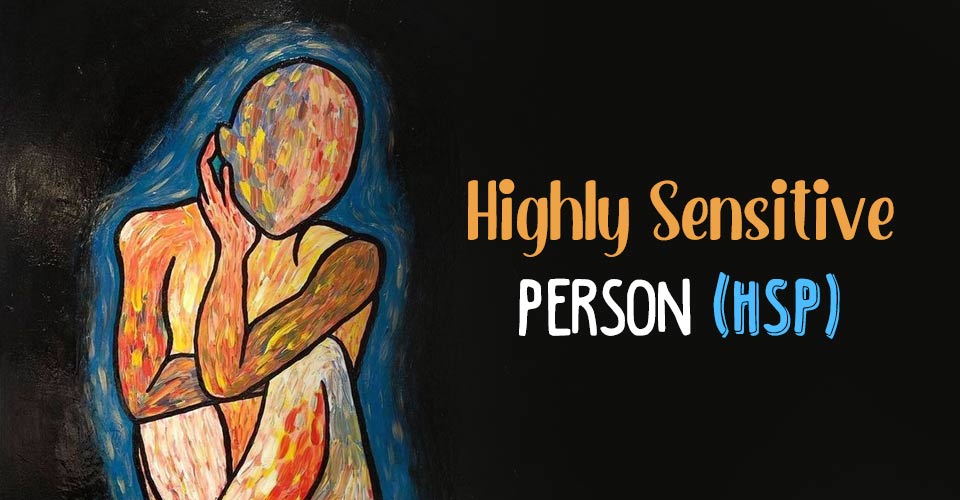

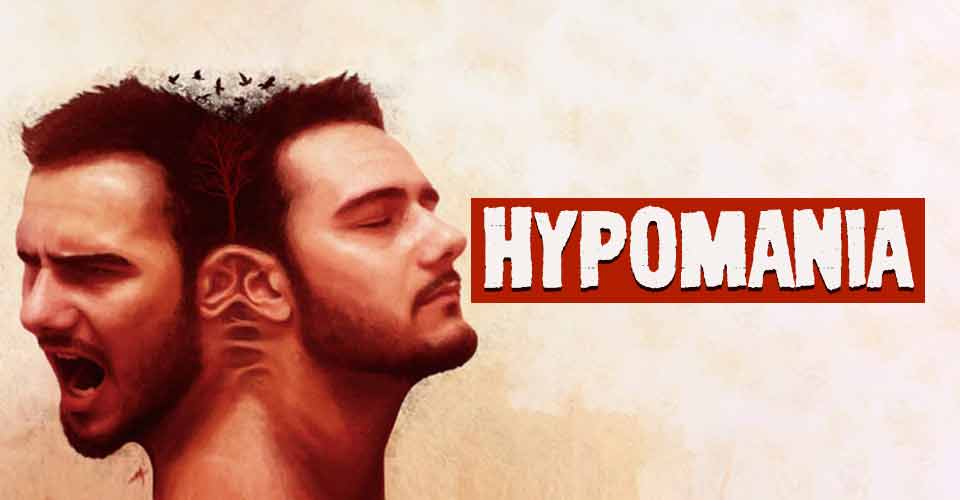



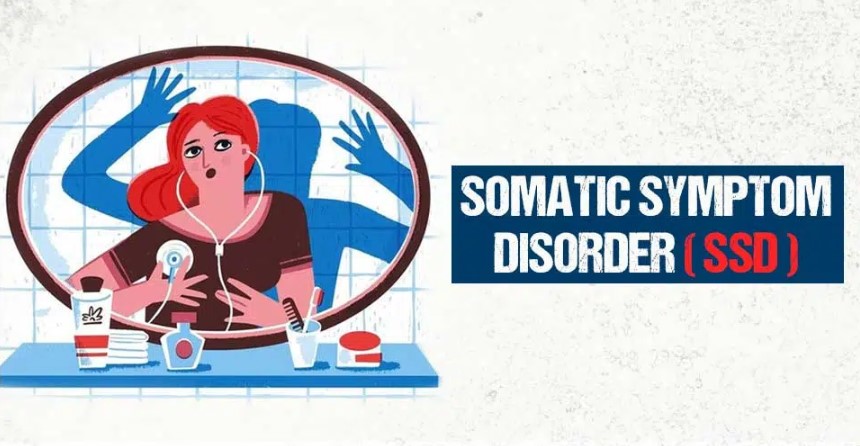

Leave a Reply